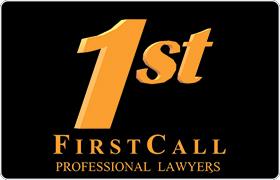Buena Park Felony Lawyer, California
Sponsored Law Firm
-
 x
x

Click For More Info:
-
First Call Legal Services Corporation
530 Hacienda Dr Unit 101B Vista, CA 92081» view mapCriminal Defense Effective. Versatile. Decisive.
Our vision is to build strong, trust-based client relationships from our first handshake. Every challenge is an opportunity. You need the RIGHT PEOPLE for the job you want done.
760-690-3999
Andrew Marc Stein
✓ VERIFIEDCriminal, DUI-DWI, Felony, Misdemeanor
Andrew M. Stein has been practicing law for over thirty years and has specialized in the area of criminal law and civil rights. He received his Bachel... (more)
Craig Wilke
White Collar Crime, RICO Act, Felony, Civil Rights
Status: In Good Standing Licensed: 34 Years
FREE CONSULTATION
CONTACTFREE CONSULTATION
CONTACTFREE CONSULTATION
CONTACT First Call Legal Services Vista, CA
First Call Legal Services Vista, CA Practice AreasExpertise
Practice AreasExpertise

